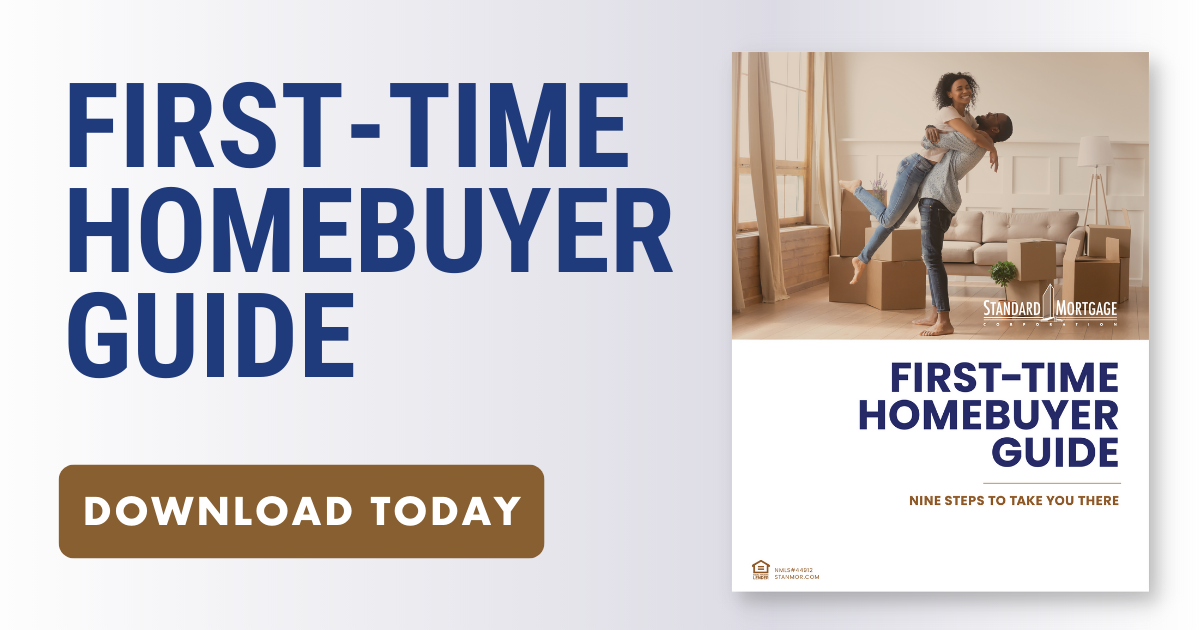Adjustable Rate Mortgages (ARM)
An adjustable rate mortgage (ARM) is a mortgage product where your interest rate may change at specified intervals over the life of the loan based on a predetermined index and margin.
Buying a home is a major event in anyone’s life. It is filled with big decisions and a variety of choices. Location, size, style, and more are all options to consider. However, one of the most important decisions you’ll make will be which type of mortgage is best for financing your new home. There are several mortgage options, each with different benefits based on your needs. Here is everything you need to know about conventional loans.
A conventional mortgage is a home loan that is not insured by the Veterans Administration (VA) or by the Federal Housing Administration (FHA). However, conventional loans must adhere to the down payment and income requirements that Fannie Mae and Freddie Mac set and also conform to loan limits set by the FHFA (Federal House Finance Administration). Conventional loans are typically offered by lenders that also provide FHA, VA, and USDA loans.
Conventional loans are purchased by Freddie Mae and Fannie Mac which are Government Sponsored Entities (GSE) but are not government-owned. However, since the financial crisis in 2008, these entities have been in government conservatorship. They have different lending standards and requirements than FHA, VA, or USDA loans and are not government-insured.
Conventional loans are typically available in 15,20,25, and 30-year terms. You may also find that some lenders will offer a 10-year conventional loan. Remember that the shorter your term, the higher your monthly mortgage payment.
Conventional loans offer a variety of down payment options. Ultimately your interest rate and any additional mortgage insurance fee will be based on the size of your down payment. A 20% down payment will eliminate the need for private mortgage insurance, but there are lower down payment options. Your down payment for a conventional loan can be as low as 3%.
It is common for government-backed mortgages like FHA, VA, and USDA loans, to require an upfront funding fee. These fees typically range between 1% and 3% of the total loan amount. Conventional loans do not require a funding fee.
There are two types of conventional loans, conforming and non-conforming. A conforming conventional loan is a mortgage that is less than or equal to the conforming loan dollar amount limit set by the FHFA (Federal Housing Finance Agency). In 2020, for single-family homes this limit is $510,400.
A nonconforming conventional loan is a mortgage that exceeds the dollar amount limit established by the Federal Housing Finance Agency (FHFA). Any mortgage exceeding the limit set by the FHFA would be considered a nonconforming or jumbo loan.
In order to qualify for a conventional loan, typically, the minimum credit score is 620. The higher your credit score, the more favorable interest rate you will receive.
Private mortgage insurance, also known as PMI, is required on all conventional loans that make a down payment on the property of less than 20%. The amount of mortgage insurance you pay each month will be influenced by your credit score and the amount of your down payment.
Buying a home is a major event in anyone’s life. It is filled with big decisions and a variety of choices. Location, size, style, and more are all options to consider. However, one of the most important decisions you’ll make will be which type of mortgage is best for financing your new home. There are several mortgage options, each with different benefits based on your needs. Here is everything you need to know about conventional loans.
A conventional mortgage is a home loan that is not insured by the Veterans Administration (VA) or by the Federal Housing Administration (FHA). However, conventional loans must adhere to the down payment and income requirements that Fannie Mae and Freddie Mac set and also conform to loan limits set by the FHFA (Federal House Finance Administration). Conventional loans are typically offered by lenders that also provide FHA, VA, and USDA loans.
Conventional loans are purchased by Freddie Mae and Fannie Mac which are Government Sponsored Entities (GSE) but are not government-owned. However, since the financial crisis in 2008, these entities have been in government conservatorship. They have different lending standards and requirements than FHA, VA, or USDA loans and are not government-insured.
Conventional loans are typically available in 15,20,25, and 30-year terms. You may also find that some lenders will offer a 10-year conventional loan. Remember that the shorter your term, the higher your monthly mortgage payment.
Conventional loans offer a variety of down payment options. Ultimately your interest rate and any additional mortgage insurance fee will be based on the size of your down payment. A 20% down payment will eliminate the need for private mortgage insurance, but there are lower down payment options. Your down payment for a conventional loan can be as low as 3%.
It is common for government-backed mortgages like FHA, VA, and USDA loans, to require an upfront funding fee. These fees typically range between 1% and 3% of the total loan amount. Conventional loans do not require a funding fee.
There are two types of conventional loans, conforming and non-conforming. A conforming conventional loan is a mortgage that is less than or equal to the conforming loan dollar amount limit set by the FHFA (Federal Housing Finance Agency). The maximum baseline conforming loan limits are $726,200 for single units, $929,850 for a double, $1,123,900 for a tri-plex, and $1,396,800 for a four plex. Higher loan limits will be in effect in higher-cost areas as well
A nonconforming conventional loan is a mortgage that exceeds the dollar amount limit established by the Federal Housing Finance Agency (FHFA). Any mortgage exceeding the limit set by the FHFA would be considered a nonconforming or jumbo loan.
In order to qualify for a conventional loan, typically, the minimum credit score is 620. The higher your credit score, the more favorable interest rate you will receive.
Private mortgage insurance, also known as PMI, is required on all conventional loans that make a down payment on the property of less than 20%. The amount of mortgage insurance you pay each month will be influenced by your credit score and the amount of your down payment.
Standard Mortgages has loan officers in New Orleans, Metairie, Baton Rouge, Slidell, Mandeville, Lafayette, Lake Charles, and Shreveport. We also serve Alabama, Arkansas, Colorado, Florida, Georgia, Kansas, Mississippi, Missouri, North Carolina, Oklahoma, South Carolina, Tennessee, and Texas.
Every homebuyer has unique needs. Standard Mortgage strives to meet them with quality service and individual attention. We pride ourselves in giving you the mortgage information, loan options, and convenient assistance you’re looking for, including what to expect when you apply for a mortgage loan. With a variety of loan programs and an established network of lenders behind us, we help you find the loan that best suits your needs and at a competitive rate.
An adjustable rate mortgage (ARM) is a mortgage product where your interest rate may change at specified intervals over the life of the loan based on a predetermined index and margin.
A conventional loan must meet nationally standardized guidelines, such as income, credit, and property requirements. These mortgages are subject to loan limits set by the Federal Housing Finance Agency.
The Federal Housing Administration (FHA) - commonly referred to as HUD - issues loans that provide affordable mortgages to the average homebuyer.
A fixed-rate mortgage is the most common type of mortgage product. Your monthly interest and principal payments do not change over the life of the loan.
A jumbo loan, or non-conforming mortgage, is for homebuyers who expect to borrow more than $647,200* for single-family residences.
*this loan amount may vary based on geographic location
A USDA Rural Development loan helps rural home buyers purchase a home with no down payment, low fixed rates, simple credit requirements, and the guarantee of the federal government.
Veterans Administration loans help veterans — including active duty service personnel and certain categories of spouses — finance the purchase of their homes with favorable loan terms.
The team at Standard mortgage has developed additional and related content centered around conventional loans.

Here are a few benefits that a conventional loan offers.
Learn More
There are a variety of different conventional loans. Learn about their differences.
Learn More
Which of the most common and convenient loan choices is right for you?
Learn MoreStandard Mortgage is here to help you navigate the daunting, complicated process that lies ahead. In this eBook, we'll walk through the steps you'll have to take before you hold the keys to your new home.

Copyright 2026, Standard Mortgage Corporation | All Rights Reserved

NMLS #44912